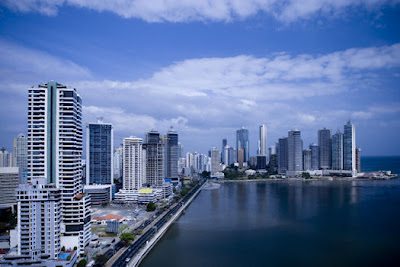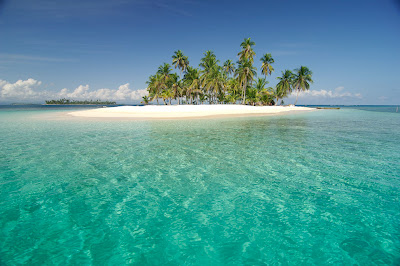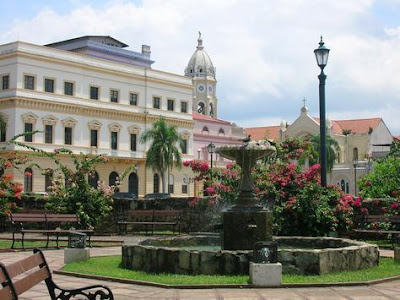How to Retire Overseas
Want to move or retire overseas, but not quite sure where to start? Kathleen Peddicord has written an excellent guide - How To Retire Overseas, and, as the book notes, indeed includes everything you need to know to live well (for less) abroad. We're excited to share it with our Wandering Educators.

Kathleen has covered the live and invest overseas beat for more than 25 years and is considered the world's foremost authority on overseas retirement. She has traveled to more than 50 countries, invested in real estate in 17, established businesses in 7, renovated historic properties in 6, and educated her children in 4. Kathleen has moved children, staff, enterprises, household goods, and pets across three continents, from the East Coast of the United States to Waterford, Ireland...then to Paris, France...and, most recently, to Panama City, where she, her husband Lief Simon, and their young son currently make their home and base their Live and Invest Overseas business.

Kathleen was Publisher and Editor-in-Chief of the International Living group for 23 years. She moved on from that role in 2007, and started Live and Invest Overseas in 2008. Today, she pens a weekly retire-overseas blog for U.S. News & World Reports and is regularly quoted by The New York Times, Money magazine, the AARP, and beyond. She has written innumerable books, reports, and essays on where and how you can escape the retirement-tromping economy at home and live like royalty on a modest budget...invest for profits overseas ahead of the crowds...and secure your dream retirement in the world's best destinations.

So with all this experience, what does this book look like inside? It's a treasure chest of information! The book starts with Ten Steps You Can Take At Home, including knowing yourself, budgets, research, getting tax advice, and more. The second section is a how-to guide on what to look for - it's an education in itself, learning about what to look for, where, and the nitty gritty details - including many critical things to think of (like year-round climate, and language issues, and where entrepreneurs are welcomed). This section also includes important information on taxes, health insurance, and expat communities.
The third section lists the world's top fourteen retirement havens. TALK ABOUT a place to dream. This chapter can help you decide - it's worth reading, again and again.
Section four focuses on the details of settling in overseas - finding a home, setting it up, creating your administrative infrastructure (banking, iutilities, etc.), learning the language, and more. The best part? Making the most of your new life!
The last section focuses on overcoming challenges and cultural differences - for truly, this will be the biggest challenge (and reward).
Here's the key to happiness in your new life overseas: recognizing and accepting that any place you go is going to have its own ways of doing things.

Panama
Peddicord packs this book full of her own personal experiences, as well as in-depth research and facts. She notes,
The experiences of my past dozen years as an American abroad has taught me two things primarily:
First, you can't spreadsheet a new life in paradise...research and planning is important. BUt once you've carried that out, set it all aside. Let your heart take over.
Second, you've got to show up. Do your research, make your plans, then take the leap.
This book is important to so many different audiences - not only retirees, but anyone thinking about or planning a move overseas. It's full of important information about the entire process, from initial ponderings to being there. It's also packed with critical information about fourteen different countries - information that can completely influence your decisions about where to go (if you're not already headed somewhere specific for a job or sabbatical). It's the best book I've found on moving and living overseas.
We were lucky enough to sit down and chat with Kathleen, about her book, her own experiences, and retiring and living overseas. Here's what she had to say...
WE: Please tell us about your book, How to Retire Overseas...
KP: This is the culmination of more than 25 years coering this live and retire overseas beat. It was a chance to address in one place all of the questions and issues associated with making a move overseas. And I think that it is published at a time when this idea of retiring or reinventing your life in another country is more relevant and important than ever before.

Panama


Belize
WE: What inspired you to write this book?
KP: The current climate in the United States. SO much has changed so quickly. The current generation of retirees (the Baby Boomers) are looking for options and for help. They recognize that they're likely not going to be able to afford the retirement they want if they continue on as they have been. Fortunately, this generation of retirees is more open-minded and adventuresome than any that has preceded it. Baby Boombers are approaching retirement...but they're also looking at another two or more decades of potentially healthy living. They don't want to spend 20-plus years scraping by and making do in the United States. They want this important phase of their lives to be an adventure. This is very possible many places in the world. That's what I try to show readers in my book.

Paris

France
WE: What sort of impact do you feel that retiring overseas has on the world as a whole?
KP: Americans retiring to other countries bring their experience, their perspective, and (important) their disposable income with them. This migration has tremendous and positive effects. American retirees abroad can be such an important economic influence that some countries work hard to woo them.
WE: You've lived in several locations overseas - what were the highlights and the challenges?
KP: We lived in Ireland for seven years...in Paris for four...and we're now three years in Panama. It has been a great adventure and has changed the way we view the world and life in general. The challenges of this lifestyle are many. Perhaps the greatest challenge for us has been related to our children, who have struggled, each in different ways. They miss their family back in the States. They struggle learning new languages (as they must).
Perhaps the greatest highlight so far, however, has also been related to our children. Our daughter graduated from university last month. Now that she's grown and able to make her own decision about where and how she'd like to live, she's choosing not to return to the States full time but to embrace a global lifestyle. She's in Panama with us right now and has a plan to start a business here within the next few months. She struggled so when we left the States (she was 8 years old at the time), but now I think she appreciates the whole experience. This is very rewarding for my husband and me.

Thailand

Belize
WE: What are your top tips for living an intercultural life - at home, or abroad?
KP: Keep your sense of humor...and leave your expectations at the border. You can't expect to import your previous way of life with you. You must be prepared to embrace the new lifestyle you discover in your new home.
WE: What is the best country for Americans who want to retire overseas?
KP: Panama qualifies as the world's top retirement haven right now, with a strong program of special benefits for foreign retirees. In addition, Panama is nearby, sunny, safe, stable, affordable (even very cheap in some parts of the country...though no longer "cheap" in Panama City). There's international-standard health care here, available for a fraction of the cost of health care in the States. Likewise, health insurance can be a bargain here. The country uses the U.S. Dollar for its currency, which is a big plus if your retirement nest egg is denominated in dollars.
WE: What are other good countries to retire?
KP: Also appealing is Belize (where they speak English)...Uruguay (very safe and far removed from the troubles of the 21st century)...France (the best choice for an affordable old world-style retirement on the continent)...Ireland (more appealing than in two decades, thanks to the economic debacle, which has reduced property values by 50% and more and brought the overall cost of living down as well)...Thailand and Vietnam (probably the world's most affordable places to live comfortably)...Ecuador (the most affordable choice in the Americas)...

Uruguay

Chiang Mai, Thailand
WE: Why should I consider moving overseas when I retire?
KP: Because you'll have the adventure of your lifetime...because it allows you to reinvent your life to be whatever you'd like it to be...because in many places around the world you can have the retirement you've dreamed of your entire life, while, in the United States right now, you likely will struggle to live a less interesting, less comfortable life...because your life will be enriched in ways you can't now imagine...because your retirement nest egg will stretch much further...
WE: What type of medical coverage do I get?
KP: You have two fundamental choices for health coverage overseas - a local, in-country policy (which will cover you in that country only, sometimes at specific health care facilities only) or an international policy from an international agency like Bupa (which could cover you anywhere in the world, including in the United States). An in=country policy can cost less than $100 a month. Bupa is more expensive, but still generally much less expensive than U.S. health insurance. The trouble is that most in-country agencies don't write new policies for anyone over the age of 64. Bupa will take new policy-holders until age 75.
WE: How much money to you need to retire overseas?
KP: No way to answer that question. It depends on how you want to live. However, it is possible to retire on as little as $500 a month in a handful of interesting and safe places (in Asia). You'd need, though, to be up for embracing a very local lifestyle. Less exotic would be a life in certain parts of Panama, Nicaragua, or Ecuador, for example...where you could retire on, say, $1,000 a month.
WE: Is there anything else you'd like to share with us?
KP: My best advice for anyone considering this idea is to do it. There is no reason you can't. Every objection you can imagine can be overcome. You're not too old or too young. You can afford it. Who cares what your family or friends thing (let them call you crazy). You can subsidize your retirement income with other income if you need or want. You don't need to wait for the kids to be out of school (I didn't). Etc. Again, all objections can be overcome. And the new life you'll discover once you muster the courage to take the leap will exceed all expectations.
If it doesn't...so what? You can always return home.
But I don't think that's what will happen. I think you'll wonder why you didn't make the move sooner...
WE: Thanks so very much, Kathleen. Your book is an invaluable resource - we highly recommend it!
For more information, please see:
http://www.liveandinvestoverseas.com/
How to Live and Invest Overseas
Kathleen Peddicord
Paperback: 304 pages
Publisher: Plume
Language: English
ISBN-10: 0452296846
ISBN-13: 978-0452296848
All photos courtesy and copyright Live and Invest Overseas.
Feature photo: Belize
Note: We received a review copy of this book from the author. Thank you! This article was originally published in 2011 and updated in 2024.
-

- Log in to post comments





















Kerry Dexter
thanks, Kathleen and Jessie. sounds like a fine book, for those who are planning to retire or just to travel. 'all objections can be overcome' -- I like that.
Kerry Dexter
Music Editor, WanderingEducators.com
http://musicroad.blogspot.com/
Elizabeth Kelse...
Great interview jessie!! This book sounds really helpful, lots of great suggestions!!
Bradley Family